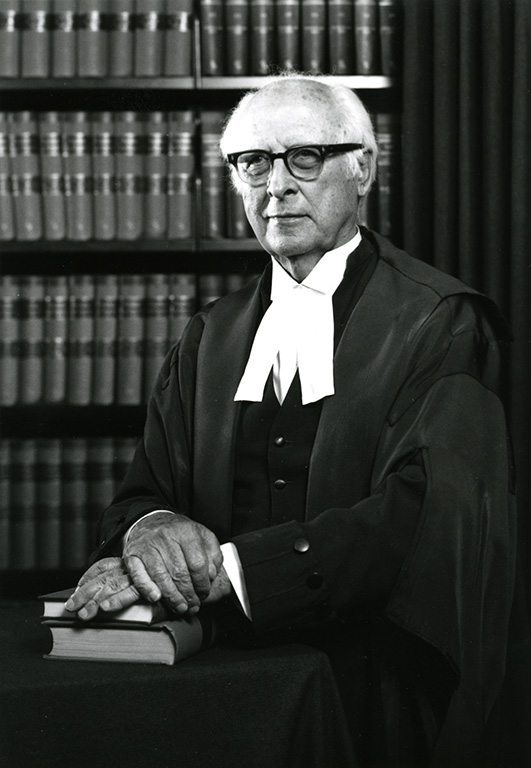Appointed by John Diefenbaker in 1961 to chair a royal commission on Canada’s health care system, Hall issued a report in 1964 that went beyond Saskatchewan’s pioneering medicare legislation and recommended wider benefits, such as free prescription drugs for seniors and dental care for school children and people on social assistance.
Lester Pearson’s government adopted many of Hall’s recommendations and implemented a national health plan in 1968 that was cost-shared with provinces.
Hall earned a reputation as a civil libertarian after serving as co-counsel in defending 24 unemployed on-to-Ottawa trekkers who were charged in the 1935 Regina Riot.
Named to the Supreme Court in 1962, Hall’s lasting judicial legacy is in the area of aboriginal law. Particularly noteworthy is his strong dissent in R v Calder, regarding Nisga’a title to territory. His view that Aboriginal title existed through centuries of occupation and could be extinguished only through surrender or by competent legislative authority is credited with influencing modern land claims settlements across Canada.
